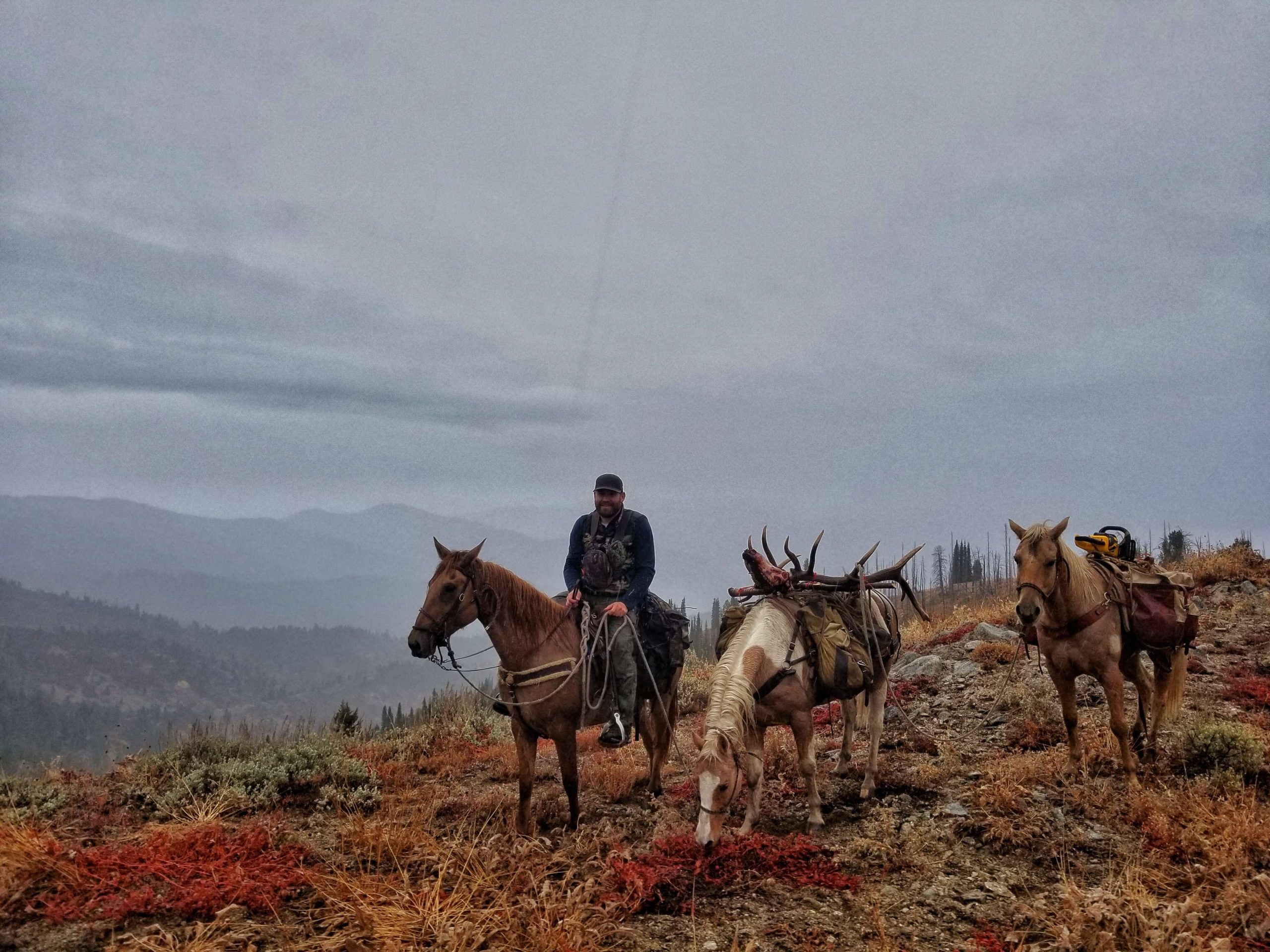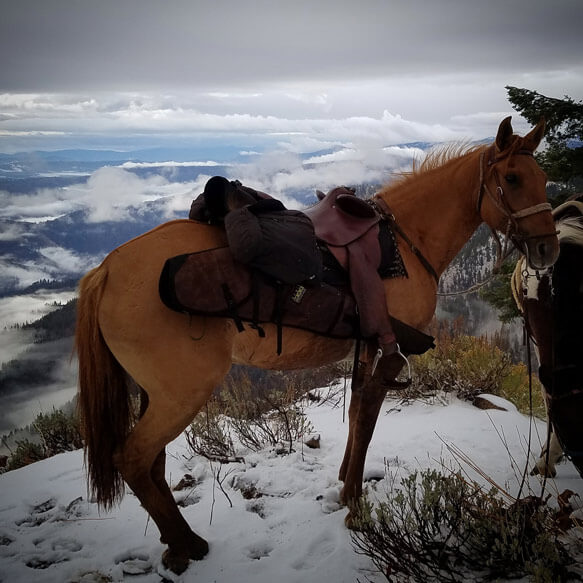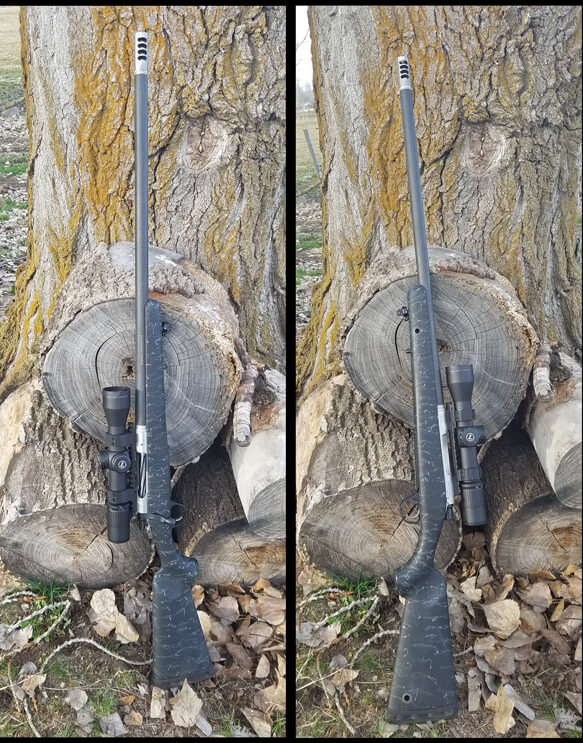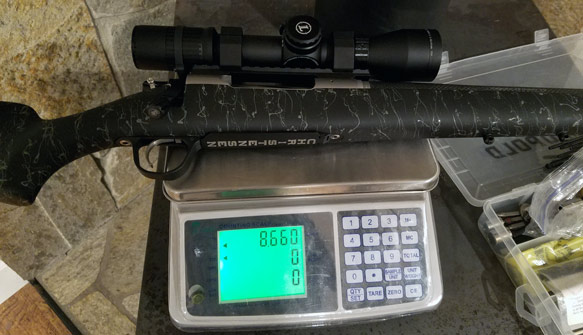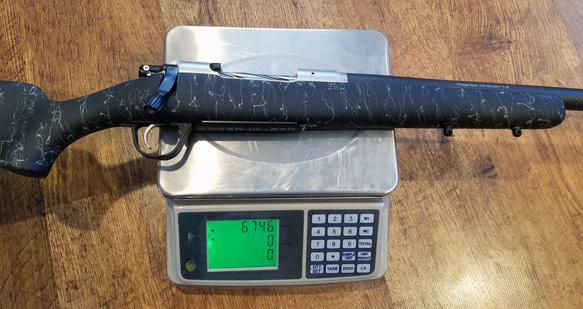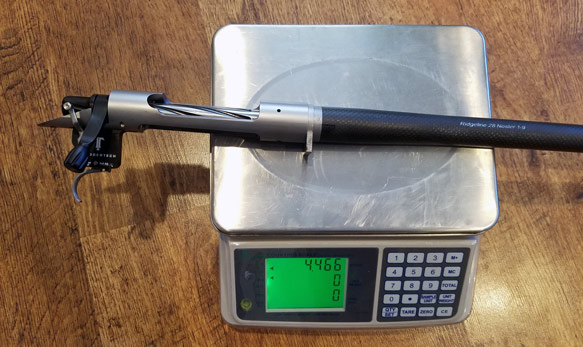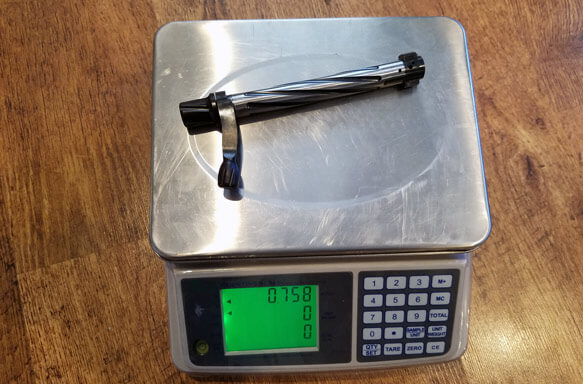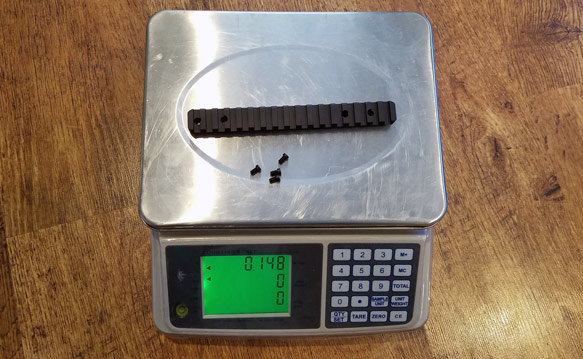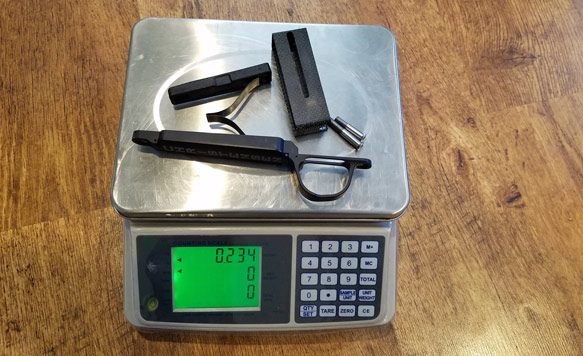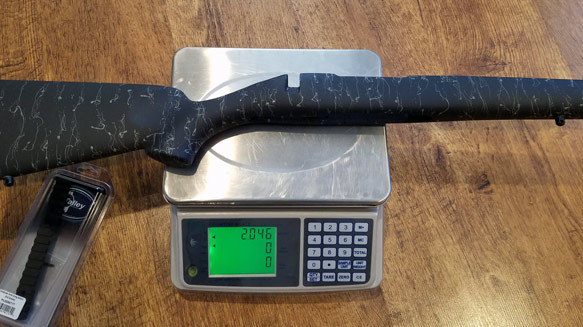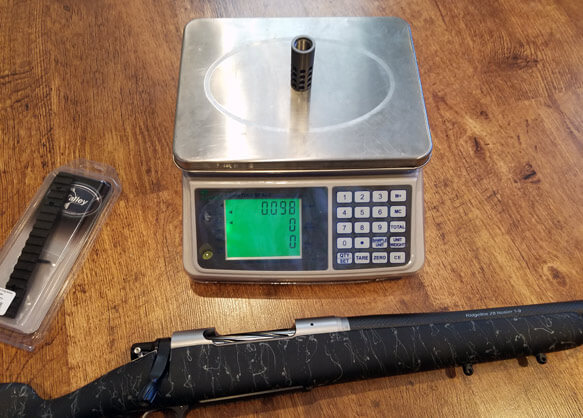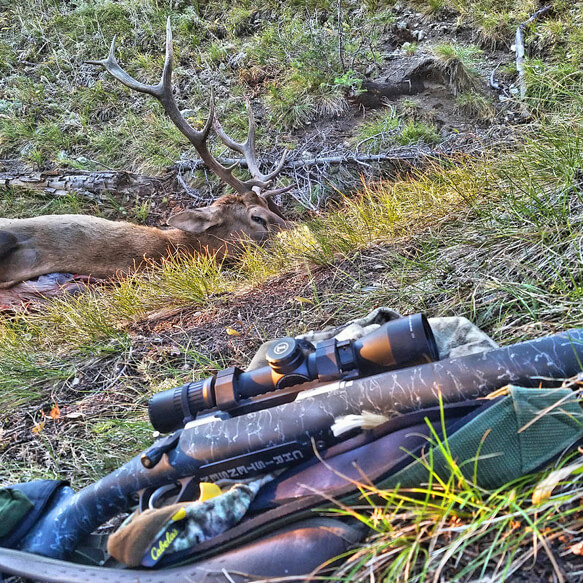
EDITOR’S NOTE: I had written a review of this rifle back in 2018. I have completely updated and replaced the review.
In 2017 I decided I wanted to hunt with a lighter long-range rifle. My first thought was to build one because I’ve had success building in the past. I soon realized I was going to spend over $3500 in order to build a magnum rifle that weighed in around 6.5 lbs. and that was still capable of consistently making a 1000 yard shot on game.
The other issue is that most gunsmiths worth their salt are backed up at least six months and there was no way I could build something and have it in time for hunting season.
SEE ALSO: Christensen Arms Offers Lightweight Rimfire – SHOT 2020
The next time I was at my local Cabela’s I checked out the line of Christensen Arms rifles and was impressed. After doing some homework and putting a pencil to it, I determined that I couldn’t build a lightweight rifle cheaper than I could buy a Christensen Arms Ridgeline. Additionally, when building your own rifle you run the risk of spending money on expensive components with no guarantee that it will shoot well. The Christensen Arms Ridgeline came with a sub MOA guarantee. To make a long story short, I bought the Christensen Arms Ridgeline in 28 Nosler.
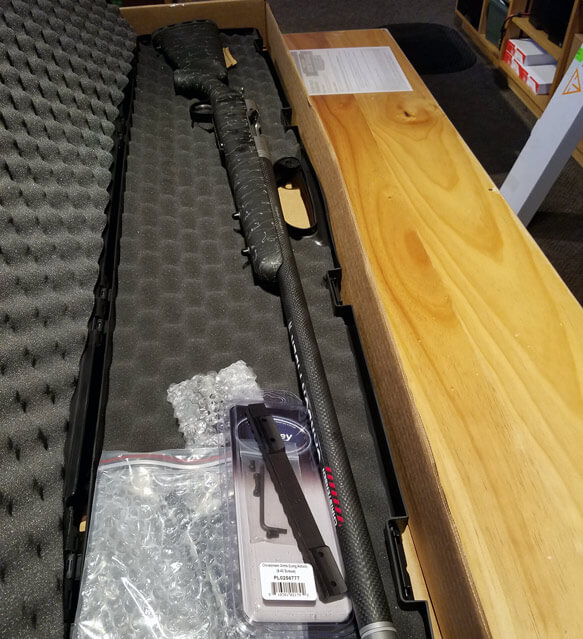
Christensen Arms
Christensen Arms is a bi-product of the aerospace industry, an industry that they are still very involved in. They were the first company ever to produce a carbon fiber barrel and are still at the cutting edge of carbon fiber technology.
Today, anything you buy from Christensen Arms has at least a sub-MOA guarantee and many of the models carry a ½ MOA guarantee. That’s an impressive feat for rifles that are extremely lightweight.
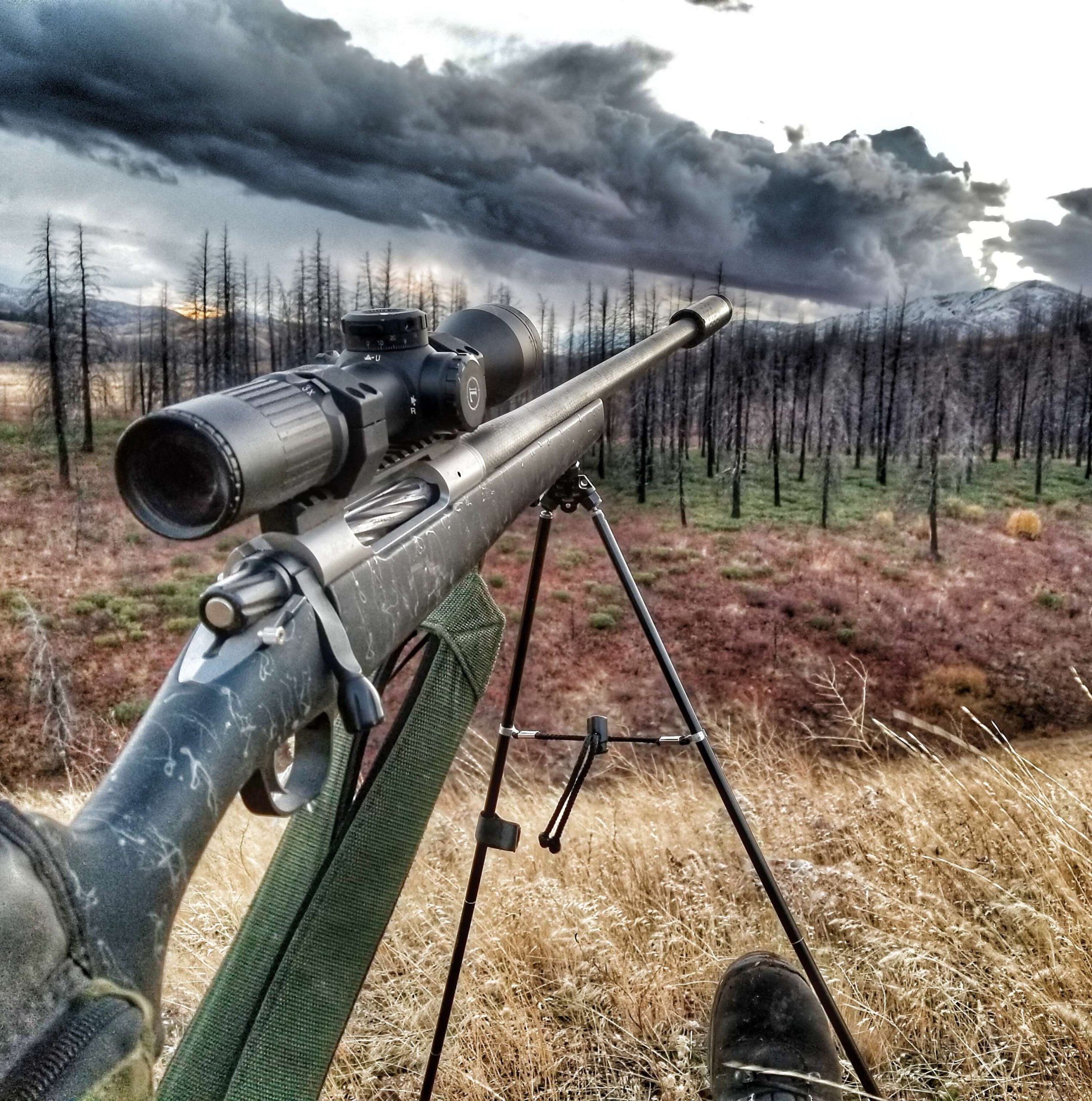
Barrel
Christensen Arms currently makes all their barrels in-house, meaning they buy 416 Stainless steel bar stock, drill it, contour it, add riflings, and hand lap every barrel. They made a huge investment in top of the line machines. All barrels used on rifles or sold as blanks are select match grade and are air gauged with tolerances typically within ten-thousandths (.0001). All the barrels are double stress relieved (once as bar stock and again after riflings). All chambers are cut with JGS match minimum diameter reamers.
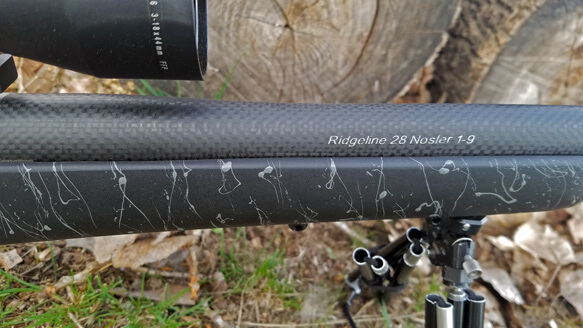
The carbon fiber isn’t just glued to the barrel. There is an engineered layup that is designed to control harmonics, reduce stringing, and move heat away from the throat and chamber area. In other words, the carbon fiber isn’t just to add mass after contouring a barrel down.
Incredibly, carbon fiber distributes heat directionally faster than any other material including aluminum. The heat moves directionally with the fiber, much like an electrical wire. Resins are what hold the carbon fiber together and they can have an insulating effect. Due to the process that Christensen Arms uses in laying their carbon fiber, heat is pulled from the chamber and throat area of the barrel. Christensen Arms claims that their carbon fiber-wrapped barrels may last up to 25% longer than their steel barrels due to the engineered carbon layup and resulting heat transfer. Barrel life is a very subjective topic but everything else being equal, the carbon wrapped barrels should last longer.
The amazing part is that you get the exact same barrel (not a lower grade) on a Ridgeline that you would get buying one of Christensen’s $5000 models.
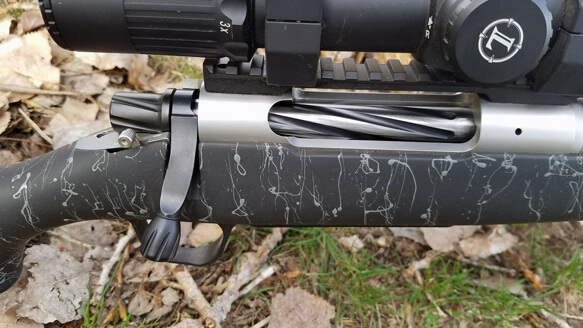
Action
The Christensen Arms Ridgeline action is a custom 416 stainless action with a stock footprint similar to a Remington 700. All the Christensen actions are machined in-house. Thread to center bore, the actions hold better than three-thousandths (.003) tolerance. The magnum bolt has dual ejectors, which help ejection on the bigger calibers and which help keep from beating your scope with brass. Bolts are made from 4340 steel, are fluted, and coated with black nitride. The bolt also features an AR/M16 style extractor, which is a great upgrade in extractor reliability and is a custom feature.
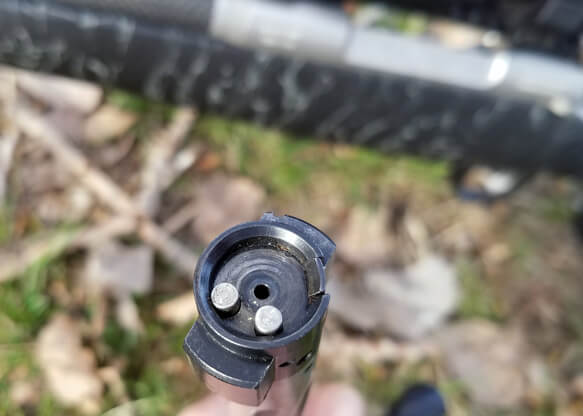
Trigger
My Ridgeline rifle came with a Trigger Tech trigger installed from the factory. It’s the one component not made by Christensen Arms. It’s a great trigger with some interesting features. The trigger is very resistant to dirt and lock-up due to debris. It’s much more reliable than most Rem 700 style triggers. Also, it has the ability to adjust the pull weight while the action is installed in the stock by using an Allen wrench. The adjustments are similar to a scope turret. They “click” and each click is equal to approximately one (1) ounce. The trigger feels great right out of the box but can be adjusted lower, which I did. I absolutely love Trigger Tech’s bolt gun triggers. [track-link url=”https://triggertech.com/” campaign=”TriggerTechTriggers” target=”_blank”]Check out Trigger Tech Triggers[/track-link]
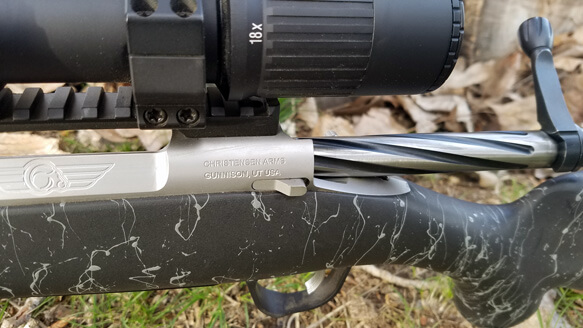
Stock
By now you should be wondering why the Ridgeline costs less than the other models of Christensen Arms rifles. It has the same barrel as the $5,000 models and still features a custom action. The major savings on the Ridgeline come from the action being made of stainless steel rather than titanium and from the use of a less expensive stock.
The Ridgeline stock is a carbon fiber and fiberglass composite stock and it costs less to produce than the other Christensen Arms full carbon stocks. Also, the stock doesn’t come fully bedded to the action like the more expensive models. It is, however, spot bedded around the recoil lug. In my opinion, the bedding is critical to consistent accuracy, so I highly recommend that you do what I did and full-length bed before you mount a scope. It’s the only major difference (that might matter to accuracy) I can find between the Christensen Arms rifles that are guaranteed ½ MOA and the Ridgeline that is guaranteed one MOA. Even though the Ridgeline stock isn’t as nice as the more expensive CA models it’s still a very good stock. It’s very light, very stiff and it fits me well
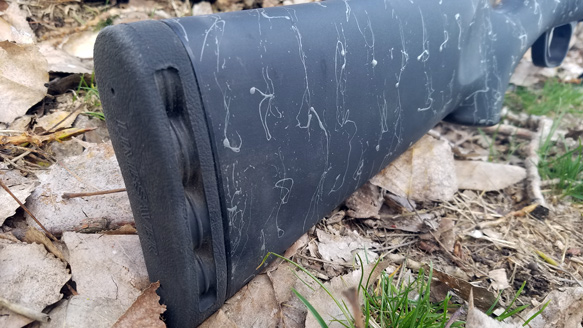
The stock doesn’t use standard aluminum pillars but uses invar pillars. Invar is a high nickel content steel that doesn’t contract/expand the way aluminum does during temperature changes. I also drilled my stock and mounted flush mount QD’s on the left side of my stock because I like slinging it flat on my back.
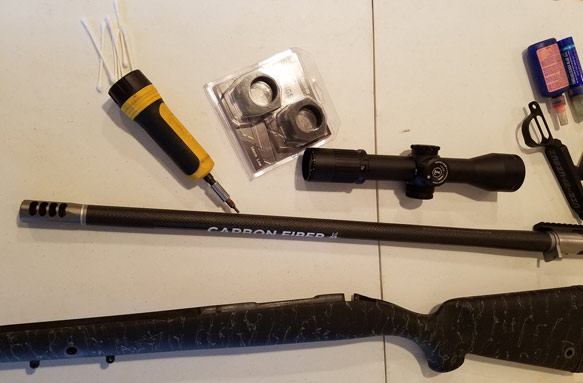
Bottom Metal
Like everything else, the bottom metal is made in-house at Christensen Arms. The bottom metal on the ridgeline is aluminum and has a hinged floor plate allowing you to unload the rifle without cycling the action. My 28 Nosler holds three rounds plus one in the chamber.
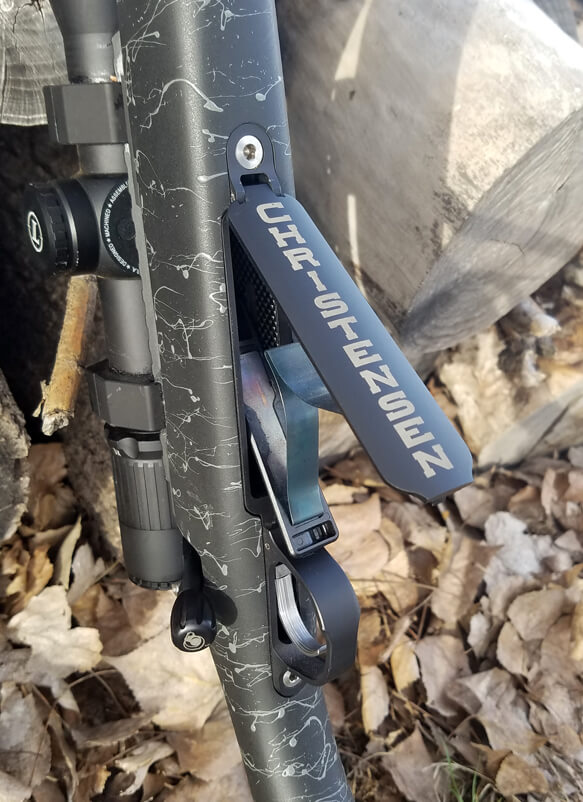
Muzzle Brake
Recoil is the enemy. It causes pain and discomfort and eventually it will make the best shooters develop a flinch, which will ultimately affect accuracy. Also, if you shoot long-range you need to have the ability to spot your own shot. The Ridgeline comes with a very effective radial brake installed that will help with all of the things I just mentioned. Radial brakes are effective but if you shoot near the ground (prone) they have a tendency to blow dirt, dust, snow, pine needles, and other rubbish everywhere. I replaced the radial brake on my Ridgeline with a Christensen Arms side baffle brake. The barrel is threaded 5/8 -24 which is a common thread that will fit many brakes and most suppressors.
In the last two years, I haven’t shot my Ridgeline without a suppressor. In fact, I don’t hunt at all without suppressing my rifles. My hearing has already taken a beating and so I’ve determined that the healthiest way for me to hunt is suppressed. My horses also really appreciate it.
That said the CA Side baffle muzzle brake is extremely effective and tuneable.
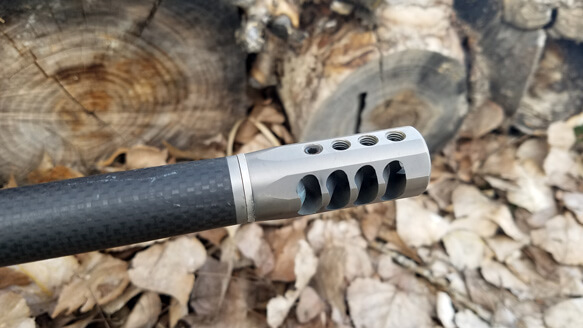
Guarantee
As I’ve already mentioned, the Ridgeline comes with a sub MOA accuracy guarantee. If it doesn’t shoot one MOA or better, Christensen Arms will replace the barrel or gun. They test fire every tenth Ridgeline for accuracy and all of them for function. Christensen’s ½ MOA rifle models are all tested for accuracy. Christensen Arms uses match grade ammunition for testing and you shouldn’t expect match-grade groups without using match grade ammo.
Accuracy
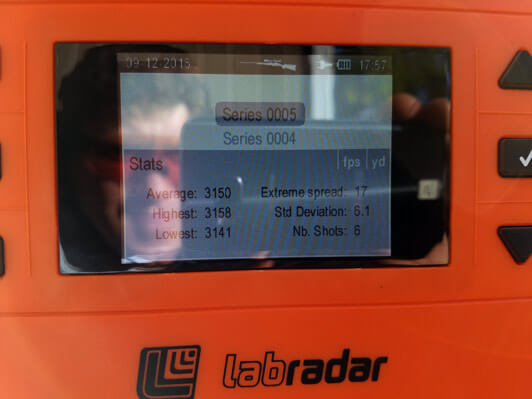
My 28 Nosler Ridgeline shoots under ½ MOA. My handloads use Nosler brass, CCI Magnum Primers, Retumbo powder, and [track-link url=”https://www.hornady.com/bullets/rifle/7mm-284-175-gr-eld-x#!/” campaign=”HornadyELDX” target=”_blank”]Hornady 175g ELD-X[/track-link] and [track-link url=”https://www.hornady.com/bullets/rifle/7mm-.284-180-gr-eld-match#!/” campaign=”HornadyELDM” target=”_blank”]Hornady 180 ELD-M[/track-link]. I use the same powder charge for both. The 175 ELD-X’s shoot at 3150 fps and the 180 ELD-M’s shoot at 3100 fps. The very first load I tried shot fantastic. My extreme spreads and SD are very low, especially considering the case capacity of the cartridge. The Hornady 180g ELD-M’s have a b.c. of .796 and shoot like lasers. If you run the ballistics no other production caliber even comes close, especially when you consider the recoil.
My handloading recipe comes directly from Nosler and you can find it [track-link url=”https://load-data.nosler.com/load-data/28-nosler/” campaign=”NoslerLoadData28Nosler” target=”_blank”]HERE.[/track-link] The only major difference is that I seat the bullet out longer than Nosler’s load data.

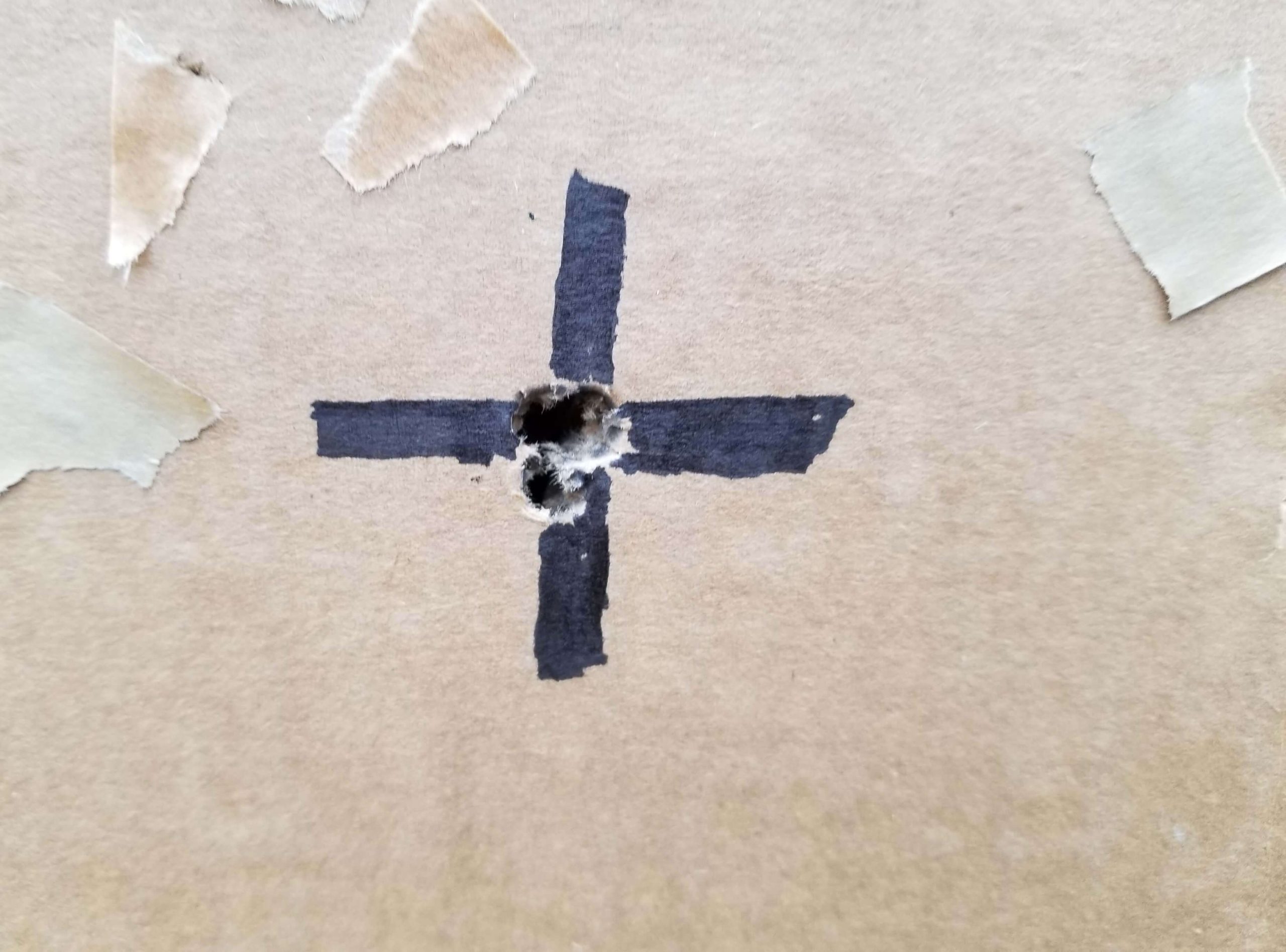
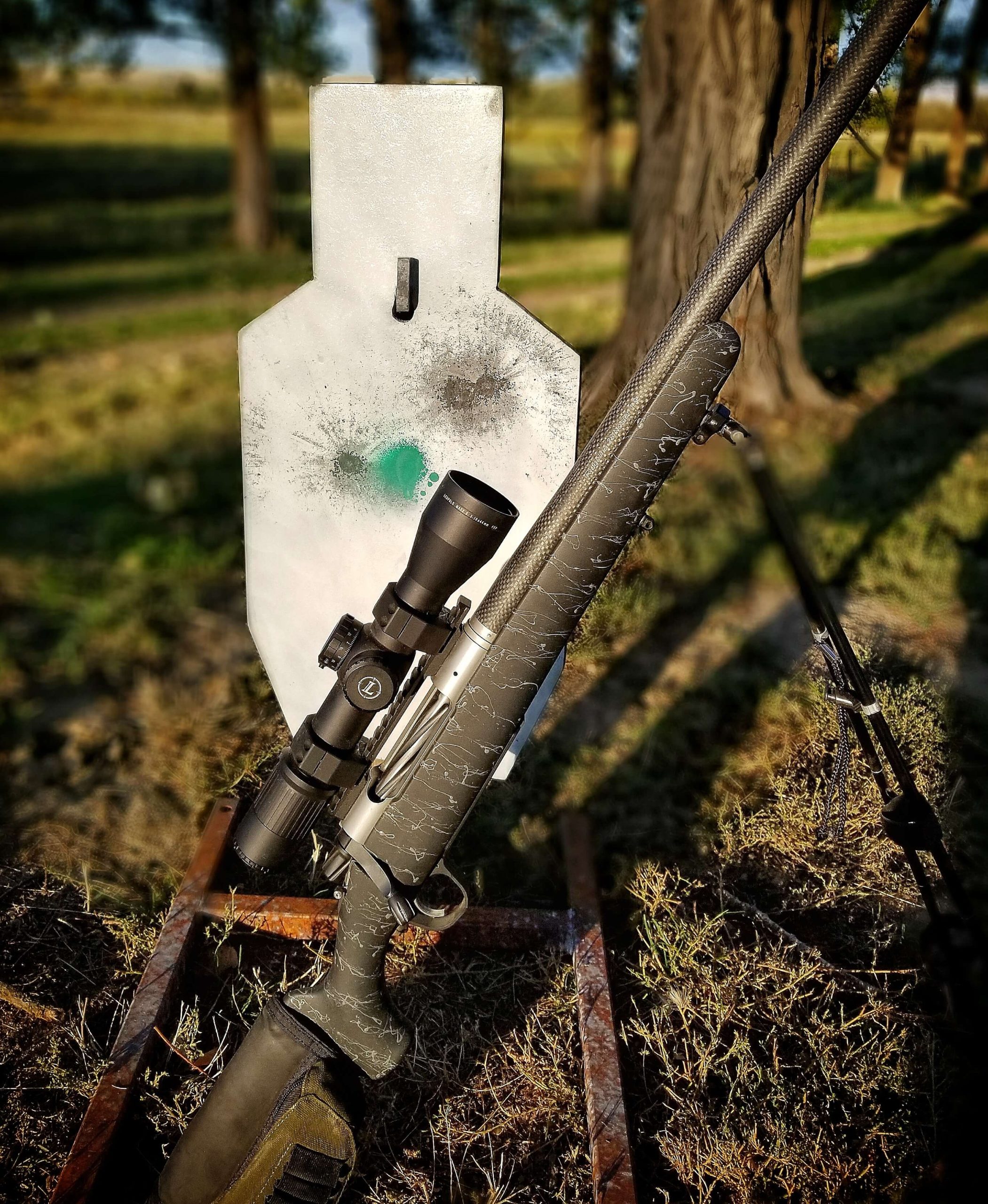
Recoil
The Ridgeline is a relatively lightweight magnum rifle, however, the recoil is very mild. I’ve never shot it without a muzzle brake or a suppressor but with either, I can spot my own shot. In my opinion, it’s much easier to shoot than a .300 Win mag. Comment below, and if there’s a enough interest I’ll post a video showing what the recoil looks like.
Hunting Sucess!
I’m a do it myself, over the counter tags, public land hunter. I’ve hauled this 28 Ridgeline hundreds of miles on a horse, quad, and packed it on my back. It has served me well. Below are a few pictures of some of the game I was blessed to harvest with the Christensen Arms 28 Nosler.
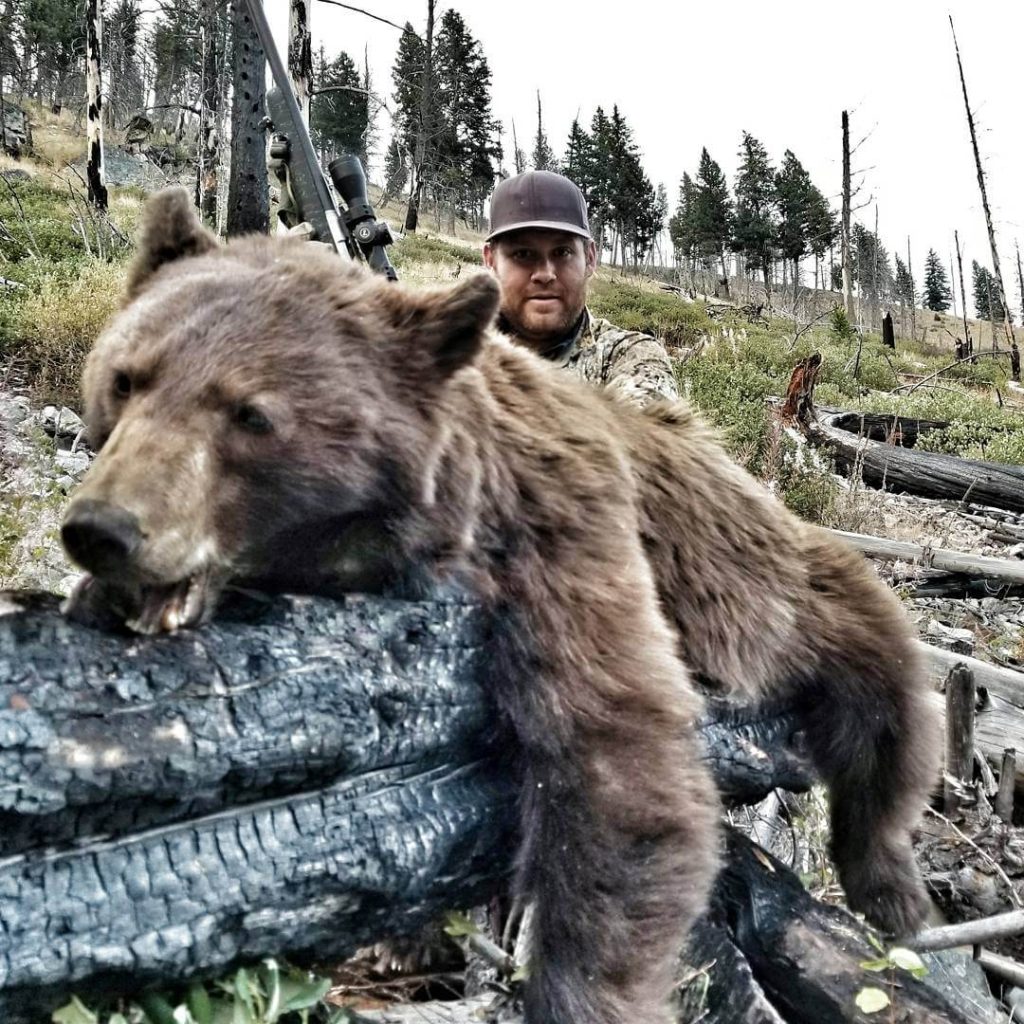
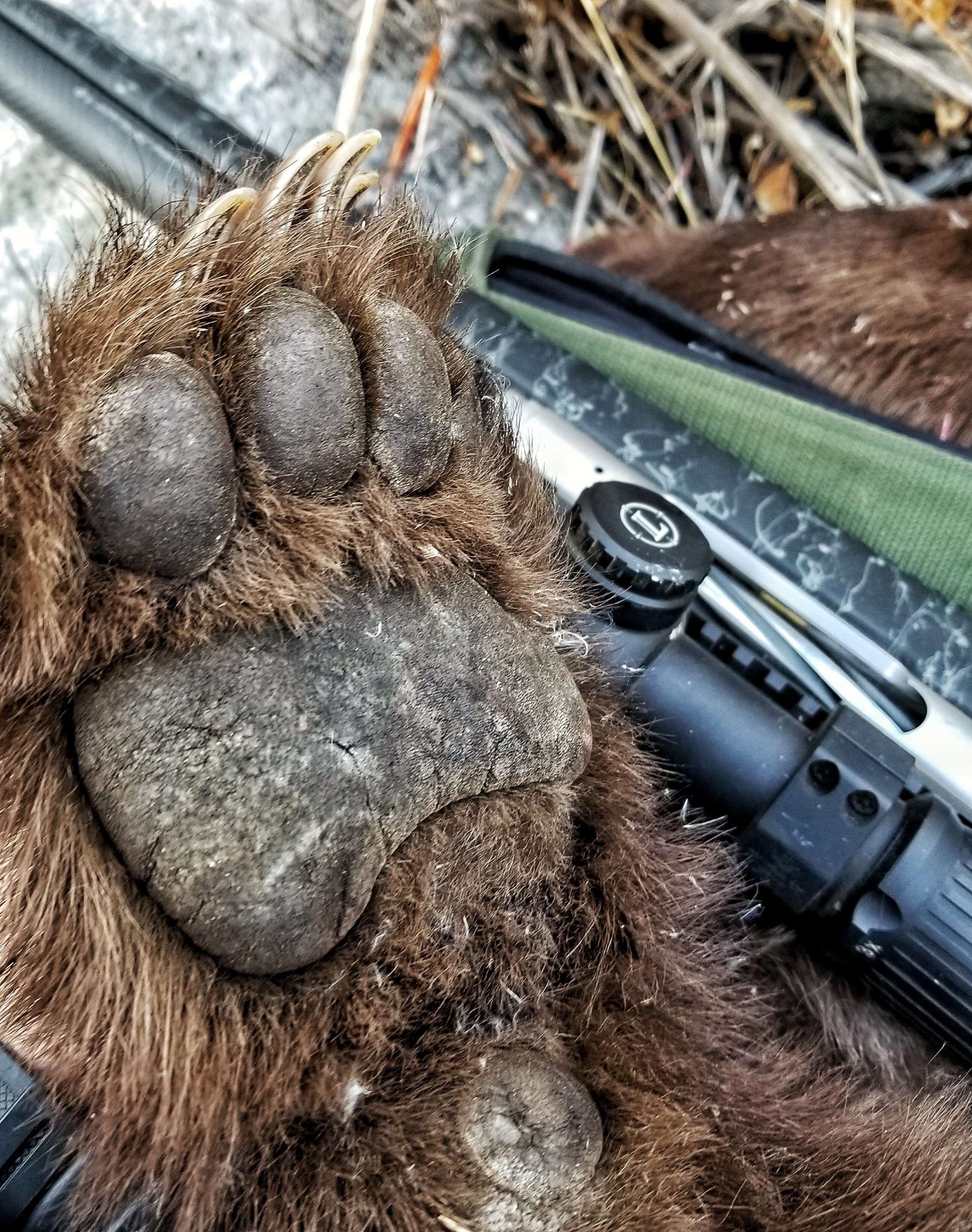
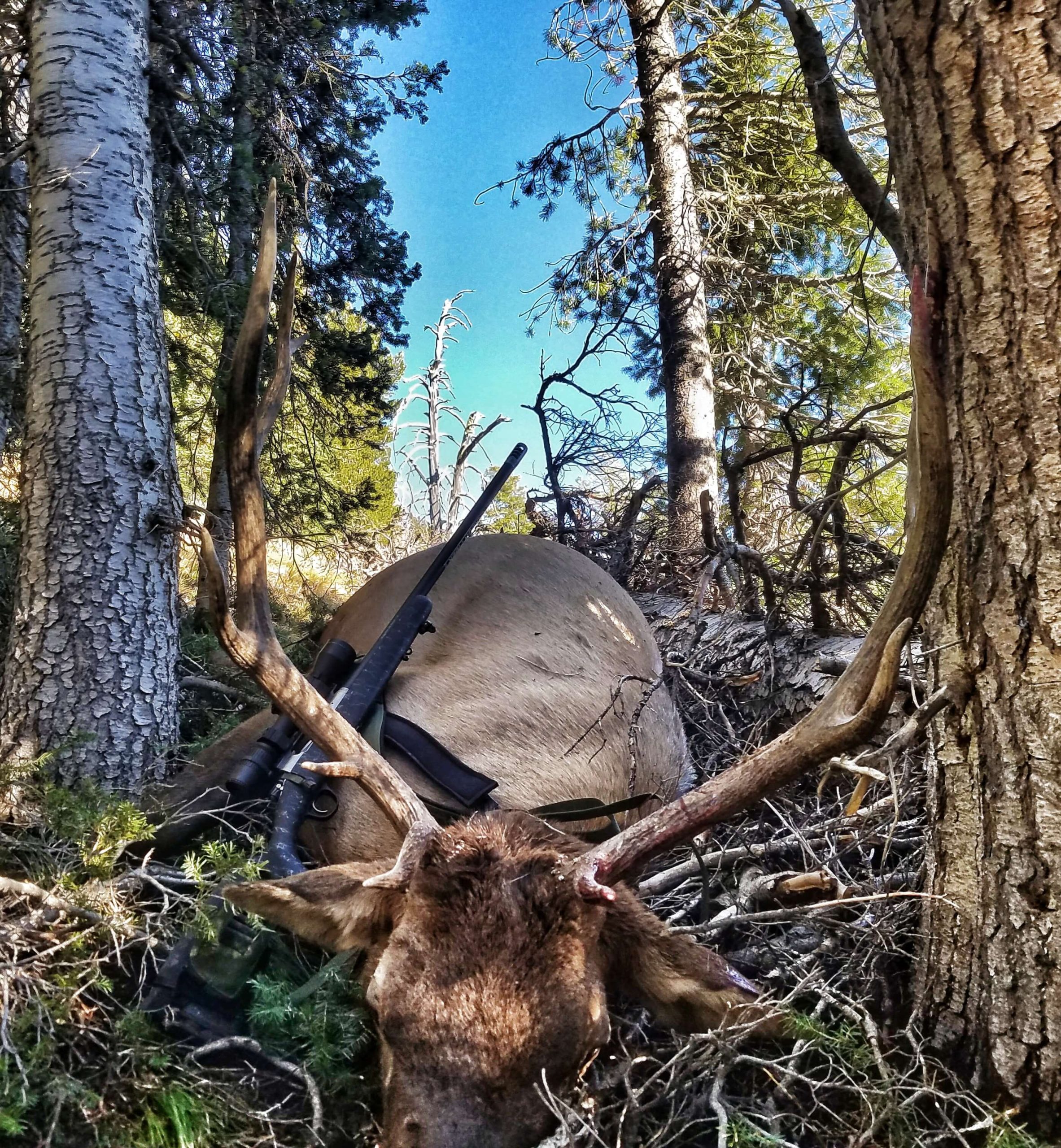
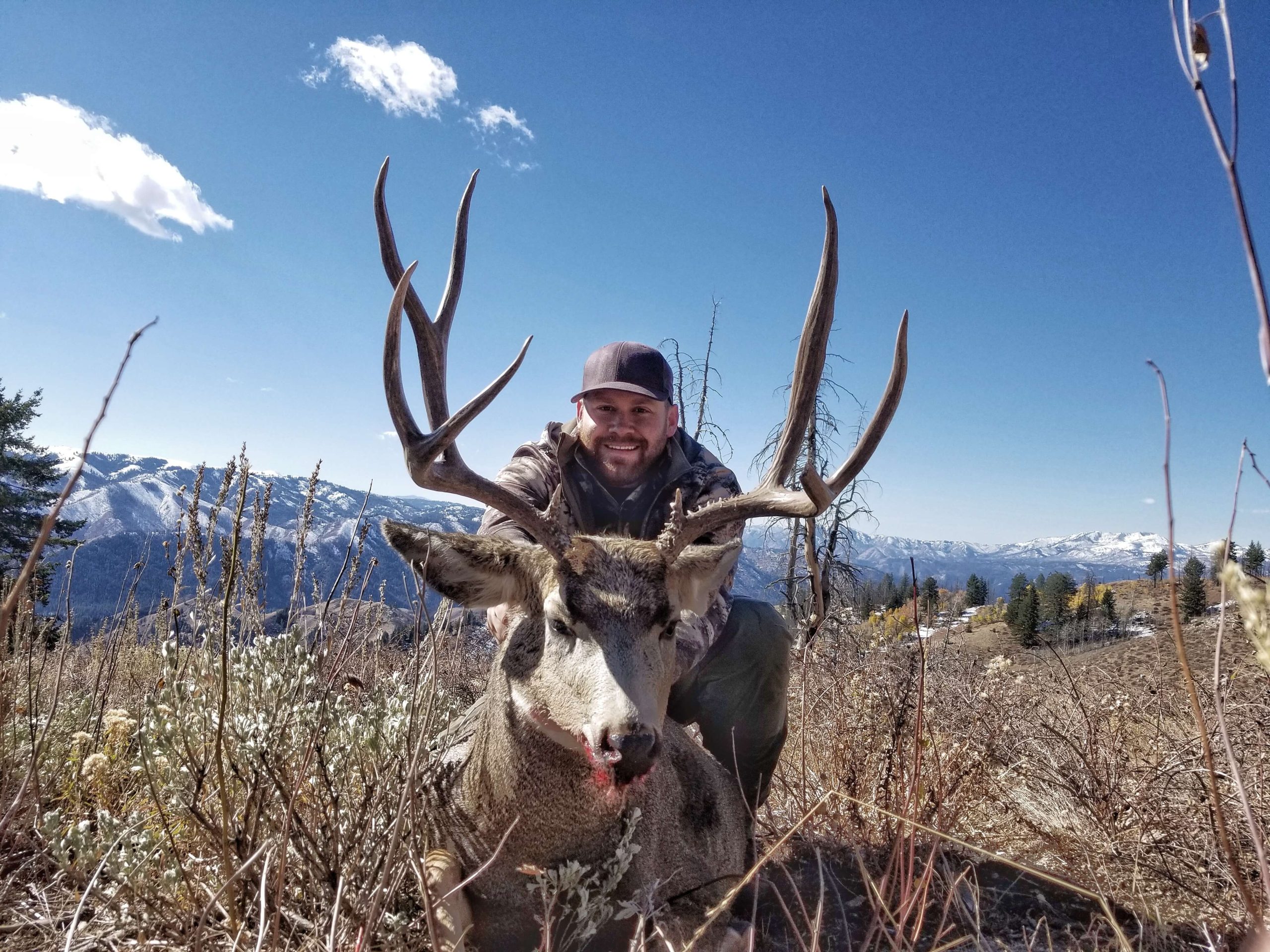
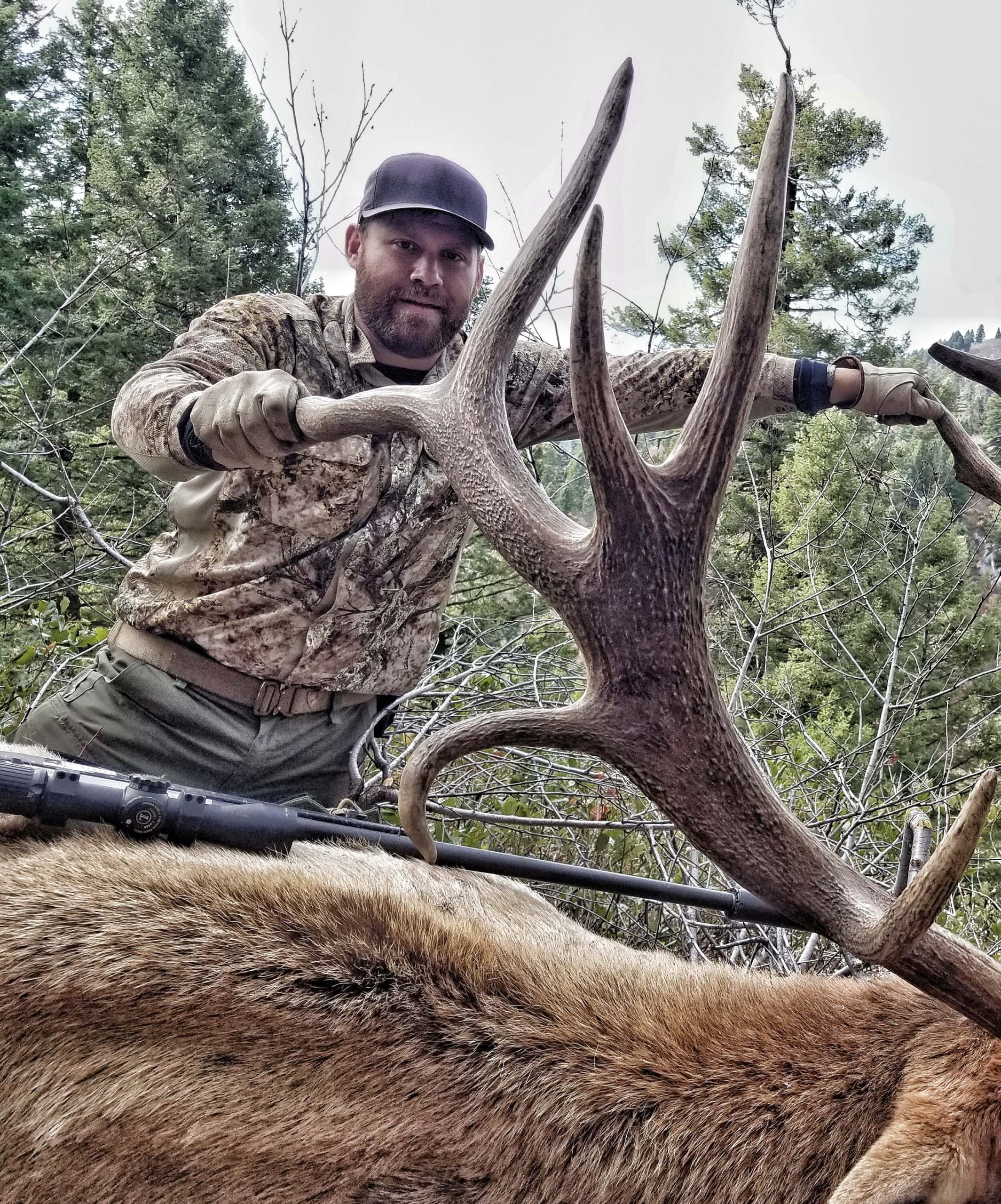
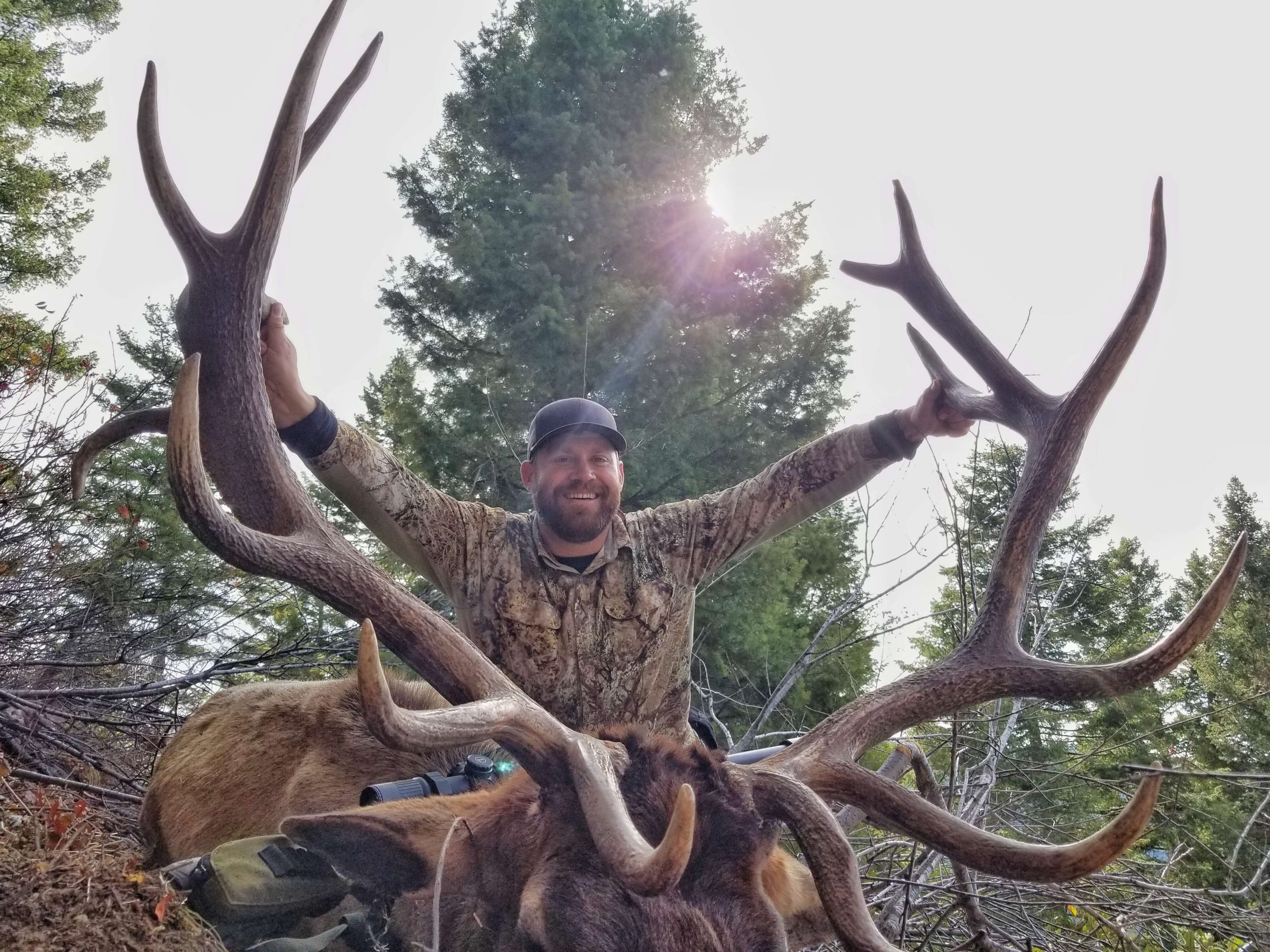
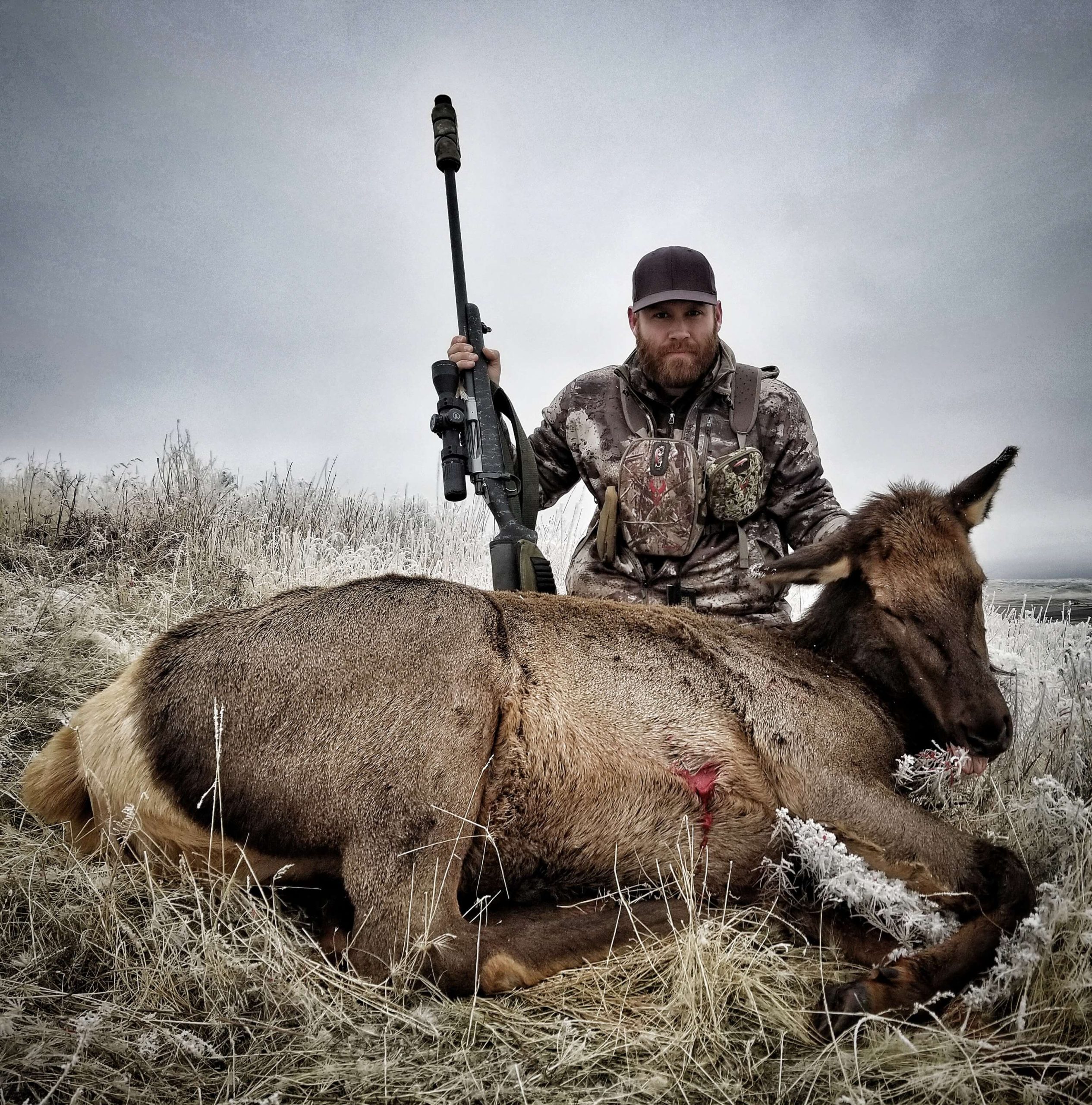
Complaints
I think the bolt throw should be smoother and easier from the factory. There’s nothing wrong with it I just think it should be better. I modified the geometry on my bolt with a file and a Dremel and it’s substantially better now. It should come that way.
My other complaint is the barrel twist rates that are offered by the factory. Christensen Arms only offers the 28 Nosler in a 1-9 twist rate, which is fine if you shoot lighter fast bullets. I want to shoot heavy high B.C. bullets and a faster twist rate would be more optimal. I live at about 2000 feet above sea level and hunt substantially higher than that. The 180g bullets are likely right on the edge of not stabilizing at 2000 ft. I really wish the barrel was a 1-8 twist. Due to the high velocity and elevation, it seems to be working but I still wish it was a faster twist barrel.
I’m 100 percent in the “hunt with a suppressor” camp. I’m going to either build up another 28 Nosler with a shorter barrel or get Christensen Arms to re-barrel this one. The barrel is currently 26 inches long and with a suppressor on the end, it’s cumbersome. I’m thinking 21 or 22 inches would be perfect. I can’t be the only one thinking this and am hoping that some rifle makers start offering suppressor friendly barrel lengths. I’m happy to sacrifice the 100 fps of velocity. The bullets have such a high B.C. that it really won’t matter.
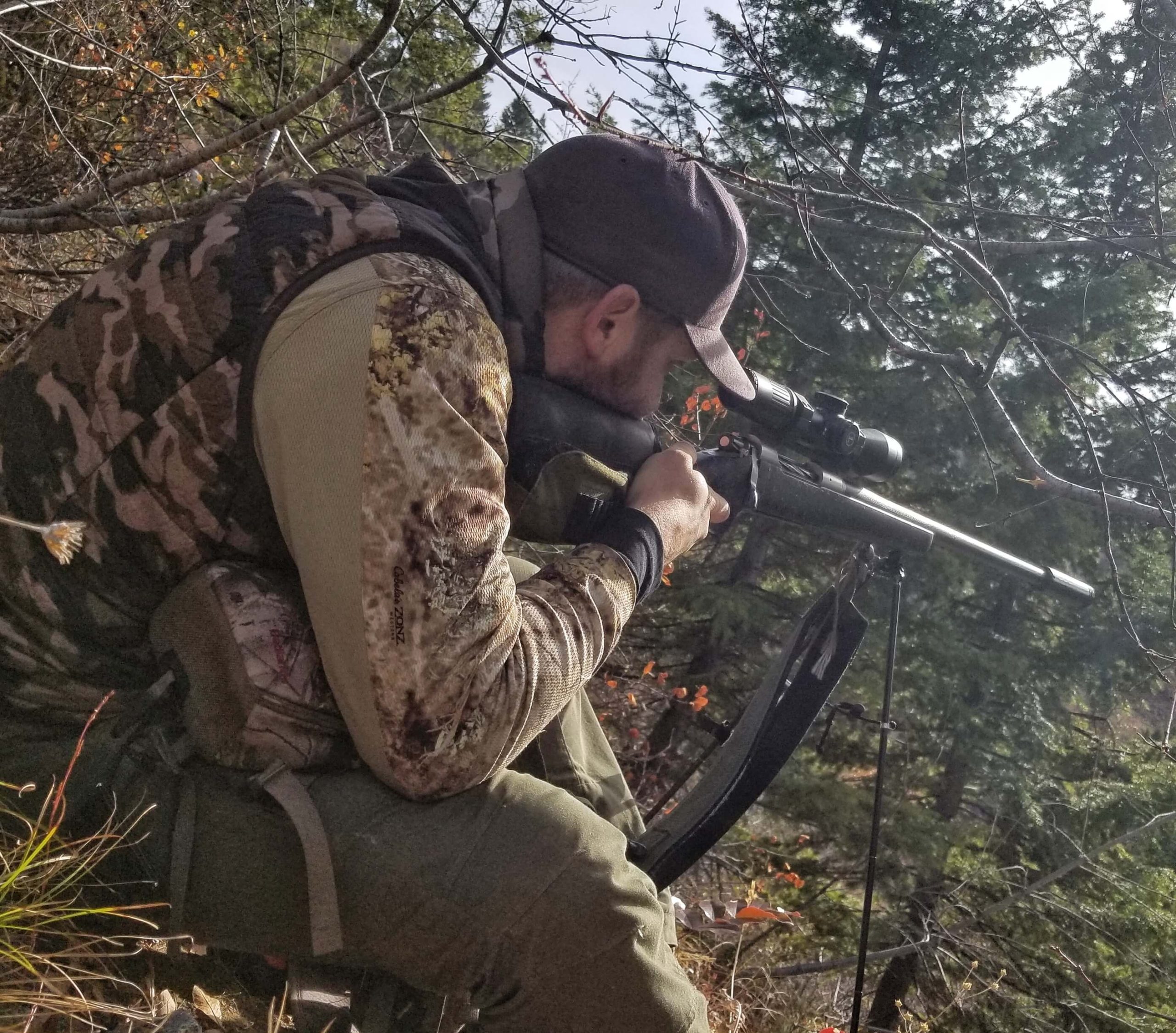
Conclusion
The Christensen Arms Ridgeline is an outstanding value. MSRP on Christensen’s website is $1995. You’re getting a custom action, custom match-grade carbon fiber barrel, custom Trigger Tech trigger, and an excellent stock for a bargain price. The entire rifle is made in the USA with the exception of the trigger and it’s made in Canada. On top of that, you’re guaranteed to have a rifle that shoots well and that won’t break your back carrying it around.
Learn more about the [track-link url=”https://christensenarms.com/ridgeline/” campaign=”ChristensenArmsRidgeline” target=”_blank”]Christensen Arms Ridgeline and see the specs and caliber options HERE[/track-link].
